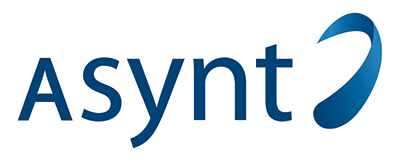Researchers from the School of Chemistry at the University of St Andrews, UK are using a DrySyn Spiral Evaporator from Asynt to help synthesise novel reactive colloidal nanoparticles that present an exciting tool to create a new generation of 'smart' nanomaterials.
The properties of nanomaterials mean potential applications extend from use in smart drug delivery systems through to new catalysts and helping to deliver greater efficiency in solar cells. However, the field is still restricted by limited synthetic capabilities.
Research at the University of St Andrews laboratory lies at the interface of supramolecular chemistry and nanomaterials. The aim of Dr Euan Kay’s research group is to translate the concepts of supramolecular chemistry into the nanoworld to achieve molecular-level control over structure and function. The team is developing synthetic methodologies based on novel colloidal nanoparticles, which can be handled ‘in solution’ in the same way as larger molecules. This enables researchers to apply the principles of synthetic supramolecular chemistry and the analytical tools of molecular science to control and characterise nanoscale structure.
Dr Euan Kay said: "The DrySyn Spiral Evaporator was mainly purchased for the removal of high boiling point solvents, such as water, dimethylsulfoxide (DMSO) and dimethylformamide (DMF), to produce dry samples of organic compounds and nanoparticles, and for removing solvent traces when transferring small samples into vials for storage.
“We would definitively recommend the DrySyn Spiral Evaporator to others. The instrument is easy to set up and takes up very little space, which is an important bonus in a crowded lab environment".

